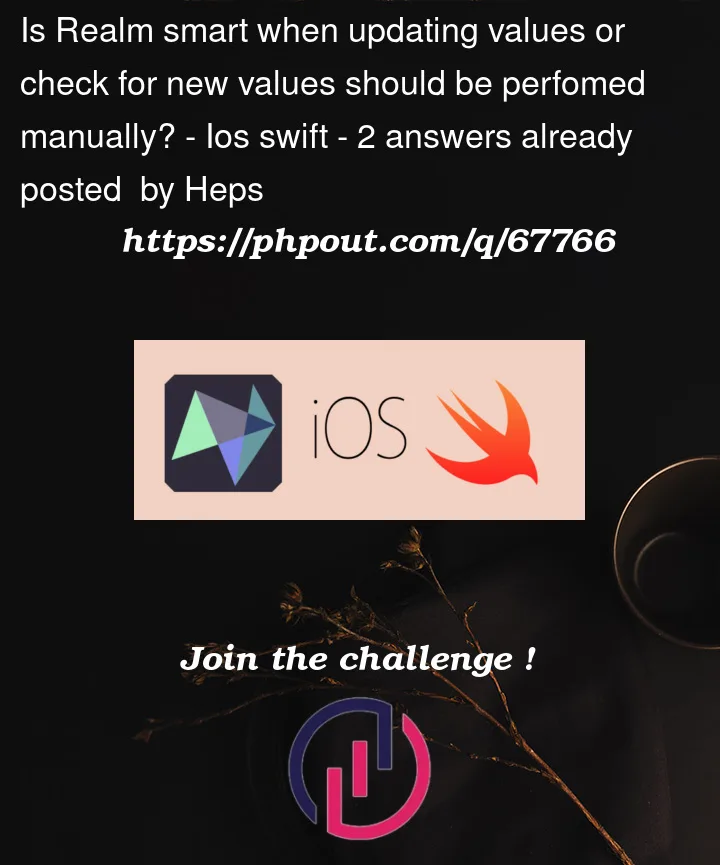I wonder if I should create my own additional layer when updating Realm objects to avoid redundant database writing operations or is it done automatically on a lower level?
Let’s take an example:
class SomeEntity: Object {
@Persisted(primaryKey: true) var id = 0
@Persisted var aaa: String?
@Persisted var bbb: Float?
@Persisted var ccc: Int?
}
when doing some batch update:
newDownloadedData.forEach { entry in
guard let id = entry["id"].int else {
return
}
try? localRealm.write {
let entity = existingLocalEntities.first { $0.id == id } ?? SomeEntity(id: id)
localRealm.add(entity, update: .modified) //this makes an 'upsertion' which is automatically an update or insert
if entity.aaa != entry["aaa"].string {
entity.aaa = movieInfo["aaa"].string
}
if entity.bbb != entry["bbb"].float {
entity.bbb = movieInfo["bbb"].float
}
if entity.ccc != entry["ccc"].int {
entity.ccc = movieInfo["ccc"].int
}
}
}
I wonder if these checks necessary or can I just go with:
entity.aaa = movieInfo["aaa"].string
entity.bbb = movieInfo["bbb"].float
entity.ccc = movieInfo["ccc"].int
and not worry that values will be updated and written even if downloaded values are the same as existing local ones?




2
Answers
EDIT: things described below do not work like expected.
eg. if name = "Tom" and later the same value is assigned ( self.name = "Tom") it will be treated as modification.
It turns out that YES, Realm can be smart about it!
the clue sits in
updateparameter in.addfunction.using
.modifiedwill result in smart data write.Excerpt from documentation:
Your observers will be notified if you update a property on a realm object with the same value. Realm does not care if you use a different value or not.
I’m not sure what your use case is, but it may be a pain in the butt to check every value manually.
You can do something like this though:
Usage would be like this: